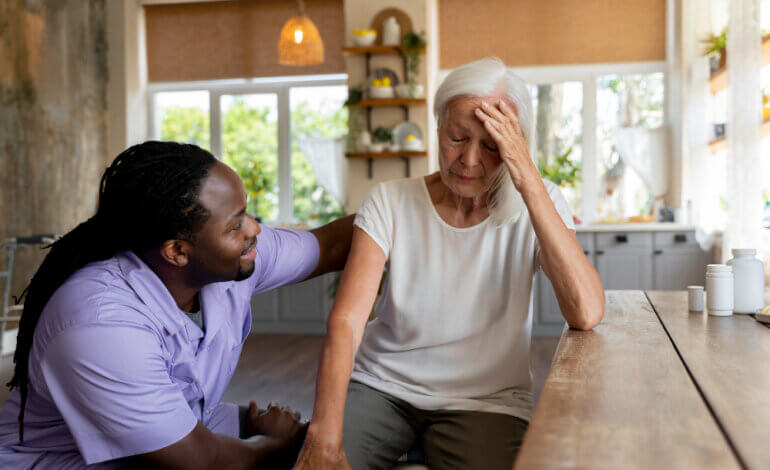Anxiety Tips for Elderly: Expert Advice
Anxiety can affect individuals of any age, but its impact on older loved ones can be particularly challenging. As caregivers, it’s essential to understand how to effectively manage anxiety in seniors to ensure their overall well-being and quality of life. In this comprehensive guide, we’ll explore top tips and strategies for addressing anxiety in older adults, providing practical advice and support for caregivers and families.
Understand the Triggers:
One of the first steps in managing anxiety in older loved ones is to identify potential triggers. These triggers can vary widely from person to person and may include health concerns, financial worries, changes in living arrangements, or feelings of isolation. By understanding what triggers anxiety in your loved one, you can take proactive steps to address these concerns.
Foster Open Communication:
Encouraging open communication is essential in helping seniors express their feelings and concerns. Create a supportive environment where they feel comfortable discussing their anxiety symptoms. Active listening and validating their emotions can go a long way in reducing anxiety levels and fostering a sense of security.
Maintain a Consistent Routine:
Establishing a consistent daily routine can provide stability and predictability for older adults, helping to alleviate anxiety. Ensure that meals, medication schedules, and recreational activities occur at regular intervals. Consistency can help seniors feel more in control of their environment, reducing feelings of uncertainty and anxiety.
Encourage Relaxation Techniques:
Introduce relaxation techniques such as deep breathing exercises, meditation, or gentle yoga to help seniors manage anxiety symptoms. These techniques can promote relaxation, reduce muscle tension, and alleviate stress. Encourage your loved one to practice these techniques regularly to experience long-term benefits.
Promote Physical Activity:
Physical activity is not only beneficial for physical health but can also have a positive impact on mental well-being. Encourage your loved one to engage in regular exercise, whether it’s walking, gardening, or gentle stretching exercises. Physical activity releases endorphins, which can help improve mood and reduce anxiety levels.
Seek Professional Support:
If anxiety symptoms persist or significantly impact your loved one’s daily life, consider seeking professional support. A mental health professional, such as a therapist or counselor, can provide specialized treatment and support tailored to your loved one’s needs. They can offer coping strategies, cognitive-behavioral therapy, or medication management if necessary.
Create a Safe and Supportive Environment:
Ensure that the living environment is safe, comfortable, and conducive to relaxation. Remove any potential hazards, clutter, or sources of stress. Create a calming space with soothing colors, comfortable furniture, and natural light. A safe and supportive environment can contribute to overall well-being and help reduce anxiety levels.
Stay Connected:
Social connections are vital for mental and emotional health, especially for older adults. Encourage your loved one to stay connected with friends, family members, and community groups. Regular social interactions can provide emotional support, reduce feelings of loneliness, and promote a sense of belonging.
Conclusion:
Managing anxiety in older loved ones requires patience, understanding, and a holistic approach. By implementing these top tips and strategies, caregivers can effectively support their loved ones in managing anxiety and improving their overall quality of life. Remember to prioritize open communication, foster a supportive environment, and seek professional assistance when needed. Together, we can empower older adults to live fulfilling and anxiety-free lives.Managing anxiety in older loved ones requires patience, understanding, and a holistic approach. By implementing these top tips and strategies, caregivers can effectively support their loved ones in managing anxiety and improving their overall quality of life. Remember to prioritize open communication, foster a supportive environment, and seek professional assistance when needed. Applied Home Health Network is here to support you and your loved ones on this journey.
Contact us today for further assistance and personalized care solutions. Together, we can empower older adults to live fulfilling and anxiety-free lives.
Anxiety and Depression Association of America: Understanding Anxiety Disorders in Older Adults
We Are Social On:

Recent Comments